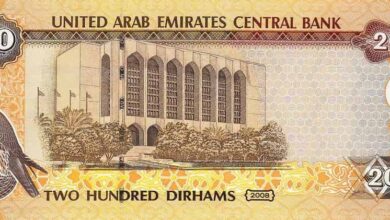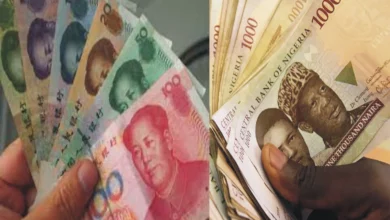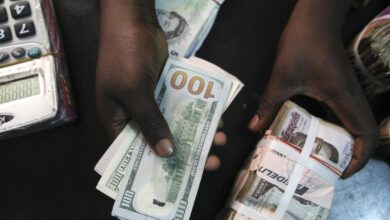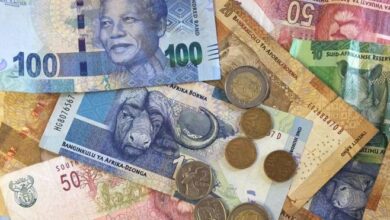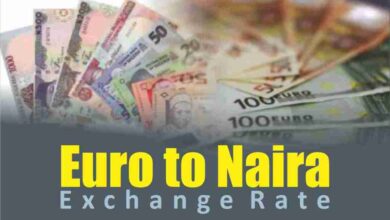Ghana Cedi to Naira Official and Black Market Exchange Rate Today
The Ghana cedi is the official currency of Ghana. It is subdivided into 100 pesewas. The Central Bank of Ghana is responsible for issuing the currency.
The cedi was introduced in July 2007, replacing the Ghanaian new cedi at a rate of 1 Ghana cedi = 10,000 Ghanaian new cedis.
The Ghana cedi is currently pegged to the US dollar at a rate of 1 USD = 5.3 Ghana cedis. Recently, the Ghanaian government said it wanted to re-peg the cedi to a group of currencies.
The Ghana Cedi Currency
The Ghana cedi is the official currency of Ghana. It is subdivided into 100 pesewas (symbol: GP). The cedi was introduced in July 2007, replacing the Ghanaian new cedi at a rate of 1 cedi = 10,000 new cedis.
The word cedi is derived from the Akan word for cowry shell, which was once used as currency in what is now Ghana.
Ghanaian coins come in denominations of 1, 2, 5, 10, 20, and 50 pesewas, as well as 1, 2, and 5 cedis. Banknotes come in denominations of 1, 2, 5, 10, 20, 50, and 100 cedis.
The Nigerian Naira Currency
The Nigerian Naira is the official currency of Nigeria and is issued by the Central Bank of Nigeria. It was introduced in 1973 to replace the Nigerian Pound at a rate of 2 Naira to 1 Pound.
The Naira is subdivided into 100 kobo and is denoted by the symbol ₦.
This rate is usually higher than the official exchange rate, which is set by the Central Bank of Nigeria.
Knowing the current black market exchange rate can help traders and businesses make informed decisions when dealing with Ghana Cedi-denominated transactions.
Ghana Cedi to Naira Black Market Exchange Rate Today
Ghana Cedi to Naira Black Market Rate
Buying @ 1 GHS = 32.681582 NGN
Selling @1 GHS = ₦33.681582
Naira to Ghana Cedi Black Market Rate
Buying @ ₦1 = 0.02967 Ghanaian Cedi
Selling @ ₦1 = 0.02969 Ghanaian Cedi
Ghana Cedi to Naira Official CBN Rate
Buying @ 1 GHS = 28.43320NGN
Selling @1 GHS = 29.43320NGN
Naira to Ghana Cedi CBN Rate
Buying @ 1 Naira = 0.029475 GHS
Selling @ 1 Naira = 0.02969 GHS
Factors affecting the exchange rate of the Ghana Cedi to Naira
Exchange rates between two countries are determined by a variety of economic and political factors.
These include the strength of the economy of each country, inflation, government policies, and investor sentiment.
The strength of each country’s economy has an influence on the exchange rate between the Ghana Cedi and Nigerian Naira. If the Ghanaian economy is stronger than the Nigerian economy, then the Cedi will be stronger and it will be more expensive to purchase Naira with Cedi.
On the other hand, if the Nigerian economy is stronger than the Ghanaian economy, then the Naira will be stronger and it will be cheaper to purchase Cedi with Naira.
Inflation is another factor that affects the exchange rate between two countries. If one country has higher inflation than the other, then its currency will depreciate in value relative to the other currency. For example, if Ghana has higher inflation than Nigeria, then it will be more expensive to purchase Nigerian Naira with Ghanaian Cedi.
Government policies also play a role in determining exchange rates between two countries. For example, if the Ghanaian government implements policies that make it easier for investors to purchase Naira with Cedi, then the exchange rate will likely improve.
On the other hand, if the Nigerian government implements policies that make it difficult for investors to purchase Cedi with Naira, then the exchange rate will likely deteriorate.
Finally, investor sentiment is also a major factor in determining exchange rates between two countries.
If investors have a positive outlook towards one currency over the other, then this will push up its value relative to the other currency.
For example, if investors have a positive outlook towards the Ghanaian Cedi over the Nigerian Naira, then it will be more expensive to purchase Naira with Cedi.
Countries That Use Ghana Cedi
The Ghana cedi is the unit of currency of Ghana. It is subdivided into 100 pesewas. The cedi was introduced in July 2007, replacing the Ghanaian new cedi at a rate of 2.4 cedi = 1 new cedi.
The Ghana cedi is used in Ghana and the following border towns:
– Togo
– Ivory Coast
– Burkina Faso
– Benin
How to get the best Ghana cedi to Naira exchange rate
Here are a few simple tips you can use to get the most out of your money:
The first step to getting the best exchange rate is to do research online. Many online currency exchange services offer different rates based on their current market values.
If you take the time to compare several different services, you can find one that offers the most competitive rate.
Additionally, many online services also provide helpful tools and resources to help you understand the process and make an informed decision about where to exchange your Ghana cedi for Naira.
Another option for getting the best rate is to find a good black market exchange.
Getting a good black market is important, and you must be careful when conducting transactions in this manner as some may be illegal or fraudulent.
It’s best to do your research and ask for recommendations before making any exchange, and consider asking around before going ahead with any transaction.
Ghana Cedi to Naira Black Market Exchange Rate FAQS
How much is Ghana Cedi to naira in black market?
Currently, the 1 GHS = 33.681582 NGN
How much is a cedi to a naira?
A Cedi is equal to 33.681582 NGN on black market rate.
How much is 1000 Ghana cedes in naira?
Currently, 1000 Ghana cedes in naira is 33,681.582
What are black market rates?
A: Black market exchange rates are currency conversions that are not based on the official supplied exchange rate that has been established by a government.
These rates on the black market are frequently observed when the official rate has just a passing resemblance to the actual conditions of the market.
Are black market prices higher?
A: When the government makes the consumption of certain things illegal, black markets emerge. This action reduces supply, causing the price of such things to skyrocket.
Conclusion
In conclusion, the Ghana cedi to naira black market exchange rate is determined by a number of factors.
These include the strength of the Ghanaian economy, the stability of the Nigerian economy, and the level of trade between the two countries. The exchange rate can also be affected by political events and natural disasters.
